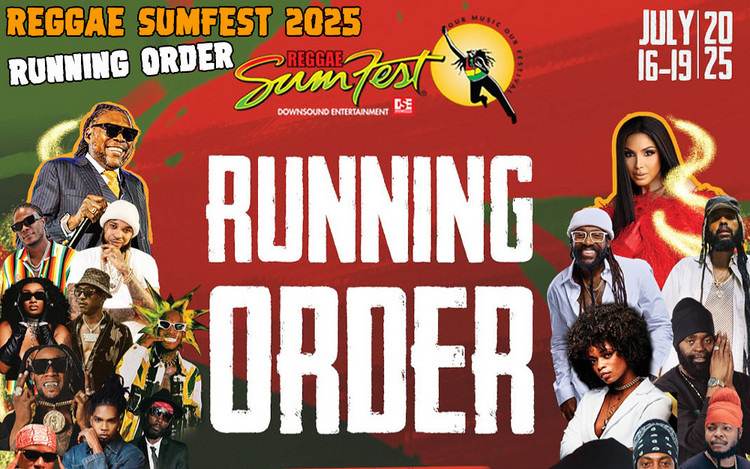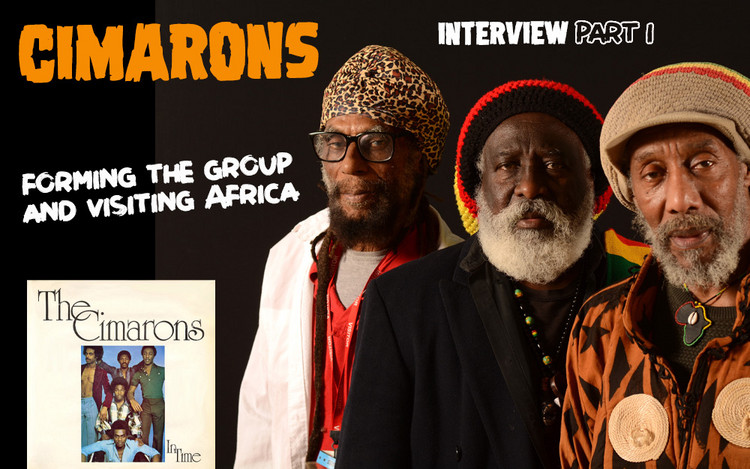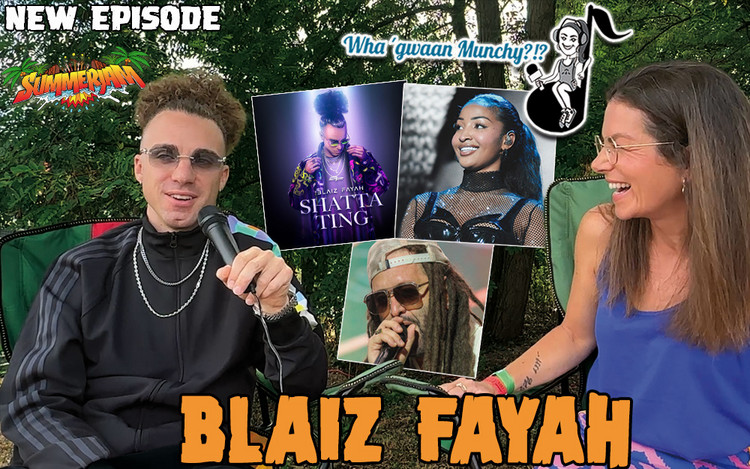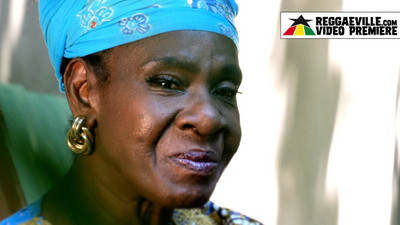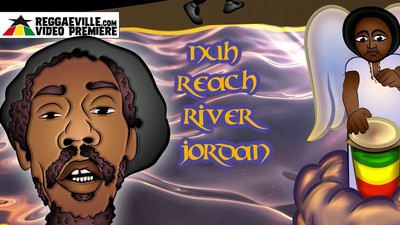Marcus Gad ADD
Marcus Gad - The 'Enter A Space' Interview
03/01/2019 by Gardy Stein
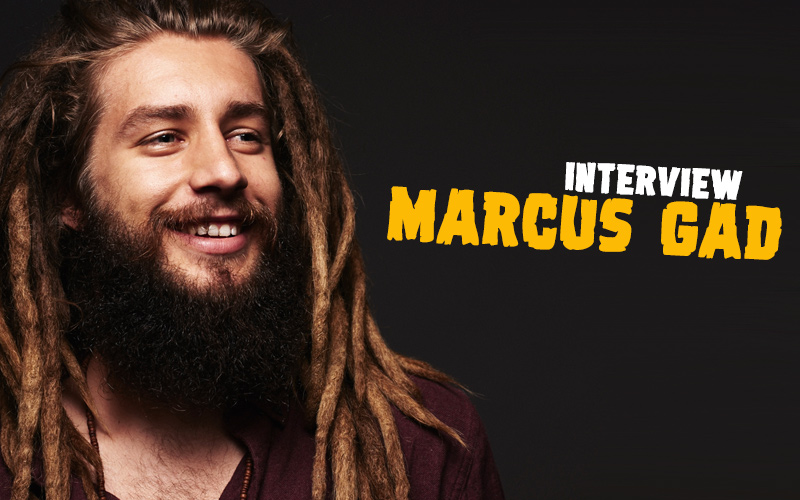
A thousand miles east of Australia, there is this little island state called New Caledonia. Situated in the peaceful vastness of the Pacific Ocean, it offers palm trees, sunshine, waves - and plenty of time for undistracted reflection. Blessed with a free mind and an almost otherworldly gift of expressing his thoughts and feelings in song, Marcus Gad has developed into an eye-opening person both on and off stage. With his EP Enter A Space (Baco Records), he released a magic piece of art that soothes and nourishes the agitated soul of our times, and who would not take the chance to experience that?
Reggaeville is proud to present this exceptional singer on this year's Reggaeville Easter Special Tour, and to understand more about where he's coming from (both physically and artistically), we asked him to tell us about his island, his travels and his music:
Greetings! How does a typical Sunday look like on the other side of the world?
Right now we were just by the beach, enjoying the sunset. We were shooting another video today, so we were going around a lot. But yeah, basically it's island life... we are chilling out!
Can you tell us something about New Caledonia, the land and the people? I guess hardly anybody knows anything about it. I admit that I had to look it up on a map!
New Caledonia is very unique because nobody really knows about us, and our history even less. We have our very own culture here, it's a mix of a lot of people, you have people coming from Europe, that were descendants of... you know, France used to send people to jail here, so you have that part of the population. Then you have the tribal population, because New Caledonia is composed of more than 390 tribes, there is 28 languages on the island. And we are only 300,000 inhabitants, so if you think about that, the ratio of 28 languages for 300,000 people then you can wrap your head around the cultural richness that we have here.
Do you speak any of these languages?
I know some words and formulations, but, you know, there are some languages that are spoken by only 60 people, 100 people, so they are... it's hard to pick one that you would learn. So we know words from a bunch of them. But everybody speaks French.
How is the Reggae scene there?
Actually it's interesting because Reggae is really big here, it has always been. Like, you hear it on the Radio every day, on TV, people play it a lot... yeah, but the thing is that we don't really have any artists that are exporting to Europe or any other parts, but there is lots of music here, especially up in the tribes. The tribal people they play lots of Reggae music and we also have this genre we call Kaneka, it's... let's say it's a mix between Reggae and local tribal riddims, but you can recognise a lot of Reggae in it. So, yeah, Reggae is really big here, there is shows happening all the time. 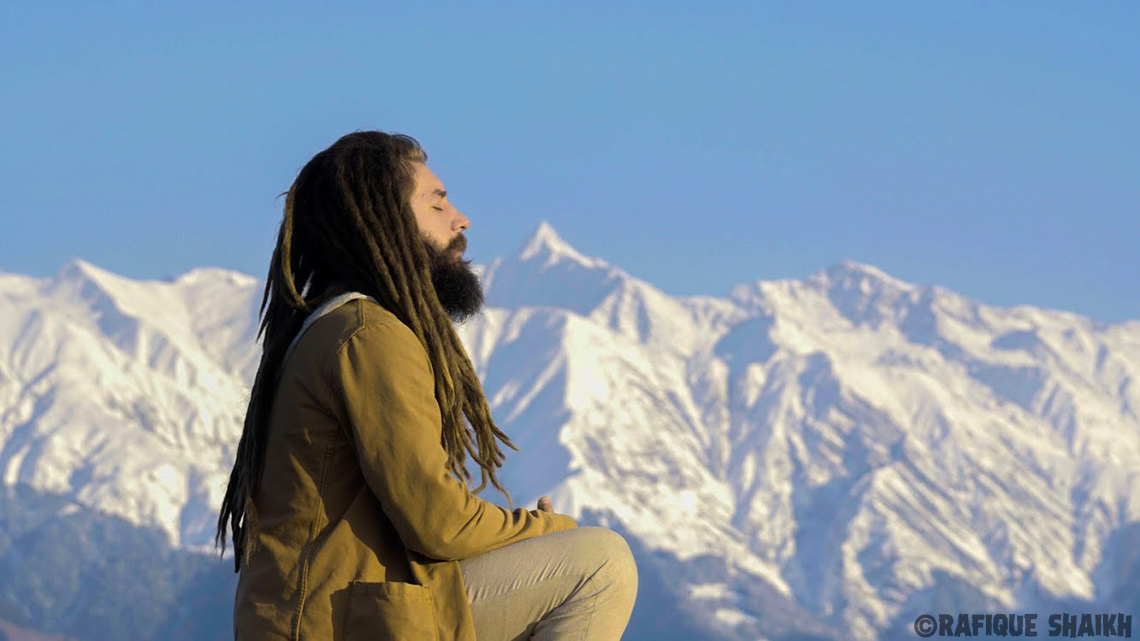
When did you start to get in touch with it?
From when I was a kid, because it's just the music we hear all the time. We've been brought up with Reggae! But let's say I got really close to it when I was around 17, 18 years old, because that's when I really picked up and started to learn English properly, and then I was really touched by the message, because for me, Reggae has always been something closely linked to the message.
Was that also the time you started to travel?
Yes, I started travelling when I was 18, and I've been traveling ever since, I never stopped! (laughs) You see, coming from a small island like New Caledonia, we get this vision of the world, you know, the world is moving really fast and the people in the big countries, on the big continents, are destroying the planet on a really rapid scale, and we living on this small island we can see what happens. The people on the big continents they don't see what they are doing, but we on the small islands, we see that the water is rising, we see the temperature changing, we see the reef dying, we see all these things! So, I guess when I started travelling this was really what brought me even closer to Reggae, cause for me it was a way to speak out about these things. With how many of the people you met during these travels are you still in touch? When I was travelling, I always travelled with music. I used to play in the streets a lot, I did a lot of busking when I was on the road. But mostly I was really looking to find people that were engaged in alternative lifestyles. Because I wanted to sing about these things and I really had the feeling that if I didn't pierce right into it, like, meet these people and speak with them, then it would have been really difficult for me to actually sing about these things. So, a lot of my journeys have been about meeting these people who are really living off the land. I met different people like in the Zapatista community in Mexico, I was in a lot of communities in Central America and visited different culture communities. Most of my journeys have really been about this, more about the message than about the music.
And after your return to New Caledonia, you started production, right? You produced two EPs...
Yes, because I was always singing! For me, in the beginning, I didn't even know if I was going to be a recording artist or anything, but a lot of my friends were telling me 'Come on, you need to put this down!' (laughs) So this is what I did when I came home, we recorded the fist EP and people here in New Caledonia they received it very well, everybody was really happy about it, so it gave us the motivation for the second one, Purify. And from then on, music took over my life really.
Can you introduce your band Tribe? How did you meet and build?
Actually, Tribe is a big mix. There is one member he is a close friend from New Caledonia, he is the keyboard player. And then the others I met them the first time that I went to France, I guess I was 20 at the time. That's when we met and it took some years before everybody gathered and that we formed what we call now Tribe. So, there is people from New Caledonia, people from Reunion Island and people from France in the band, and we play together whenever I'm on tour.
Yes, I saw a video of your performance at Rototom 2017. So impressive! How was it for you to play on that huge festival?
It was long awaited! It was amazing. I mean, we've been doing a lot of festivals, but... coming from New Caledonia, there is almost nothing happening here as far as festivals go, so for me to see something like Rototom that attracts almost as many people as live on my island (laughs), that was amazing! And for me, festivals like this are really eye-opening, because you get people coming from all over the world, so we meet all these people, we get to meet the artists that we've been looking up to for years! It was a grat experience. 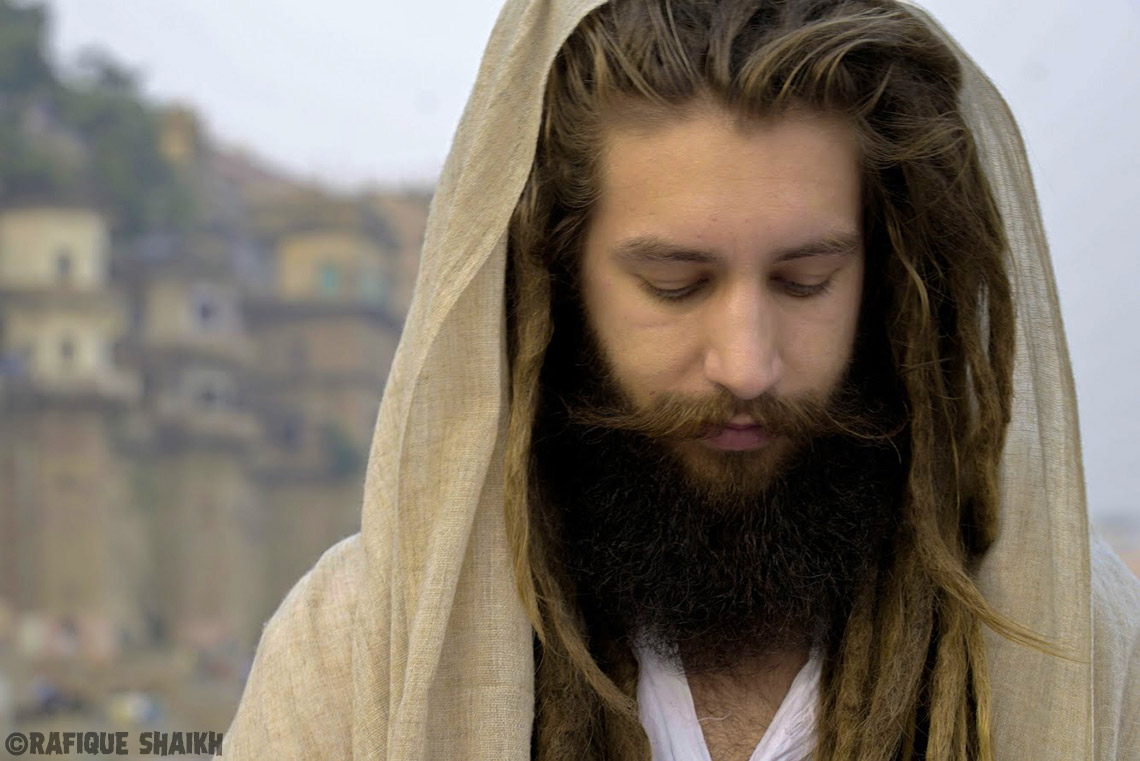
Before I saw you live at Reggae Jam last year, I only knew the track Ina Sky you did with Ackboo. How did you link up?
In France I'm staying in the area around Toulouse, and Ackboo is from there as well. We had some friends in common, so when I started recording my music, it was really a natural link. Some friend told me 'Oh, you need to work with this brother!' so we did this one first song together and then we became friends and then I did a second song with him... we did three productions together up to now.
Which brings us to the current production, your EP Enter A Space with Tamal. Can you describe how this project started?
Tamal was one of the first people I met when I arrived in France from New Caledonia. I was just 18 at the time and we started doing music together. We kept this link for years! I went on my travels, I lived my life and he lived his life, and when I came back to France and put up the band, he was working in this really big studio in Paris where we recorded my first album with the band. So, it's this link that we get and now we are working together. I just called him up a few years ago when I got back to France, and now we are touring all over together (laughs). So it was a cool link, and now with Enter A Space, I kind of wanted to open my range, because my first production is really Roots Reggae, that's really where I come from. But I've always been attracted to Soul music and HipHop and also wanted to go more into the Worldmusic scene, so for this EP we just went to the studio the two of us and said alright 'Let's record something that will be completely open, like we are not trying to perform any style, we'll just let the inspiration flow!' and then Enter A Space happened.
How long did it take to conceive of the songs and record them?
The creation of it was barely a week, we just locked ourselves in the studio and wrote all the songs. Then it took a longer time to release it, actually we kept it secret for a couple of years after that. Tamal was working on the sound and adding stuff and so on, but the real creation process was only a week and then it took two years to finish it.
Does Tamal have Indian roots? There is a lot of oriental instrumentation in the tracks.
That's from me! Tamal is working a lot with African musicians, he's been working on African and Worldmusic albums a lot. But me, I have a big influence from India, I've been travelling through India a lot. I love this style of music and I have also been touched by the Desert Blues scene, this music from Mali. The one song Live Up To The Day, you can hear it, it really sounds like Desert Blues. So, this was really the inspiration coming from that kind of music. I have always felt that Reggae music is a welcoming music in the sense that you can add any other instrument or any other influences and it will fit into Reggae. You can take Reggae anywhere in the world and it will mix with local music and it will sound great!
Was that why you invited Losso Keita to sing on Inna Nature?
Losso Keita is a good friend, he is the singer of a Worldmusic band that is called Yelé. They are really good friends of ours, like we live in the same area in France. I've always wanted to sing with him, he's an amazing singer from Burkina Faso and he's been singing from when he was a kid. I always wanted to do a song with him, and this song was perfect because I thought it has this african feel.
Coming back to India, you said that this country has touched you a lot. You also did the video shoot for River there. What made you choose this location and what was it like?
Actually, this song was really inspired by the Advaita Vedanta philosophy which is one of the main philosophies of India. It is speaking a lot about how we are not the body and how the soul is immortal and the body is mortal, and so all these texts that I read were really the inspiration for this song. I want to tell the people to be like the river, because it doesn't hold on to its bed, it flows from the spring to the ocean, and I feel like the human soul has to do the same. We shouldn't hold on to the bed which is our body, we should just live this life and let it flow.
We shot this video in Varanasi in India because when I wrote this song, I had pictures of Varanasi in my head. It is the holiest city in India and it's the place where the Hindus... they believe if they get their bodies burnt there after they die, they will get liberated from the cycle of reincarnation, so for me this was really in touch with the message. This is actually one of the reasons why we waited two years to release this thing, because I really really wanted to have the video shot there. That's the time it took and to me there was no doubt about it that the video should be shot there. 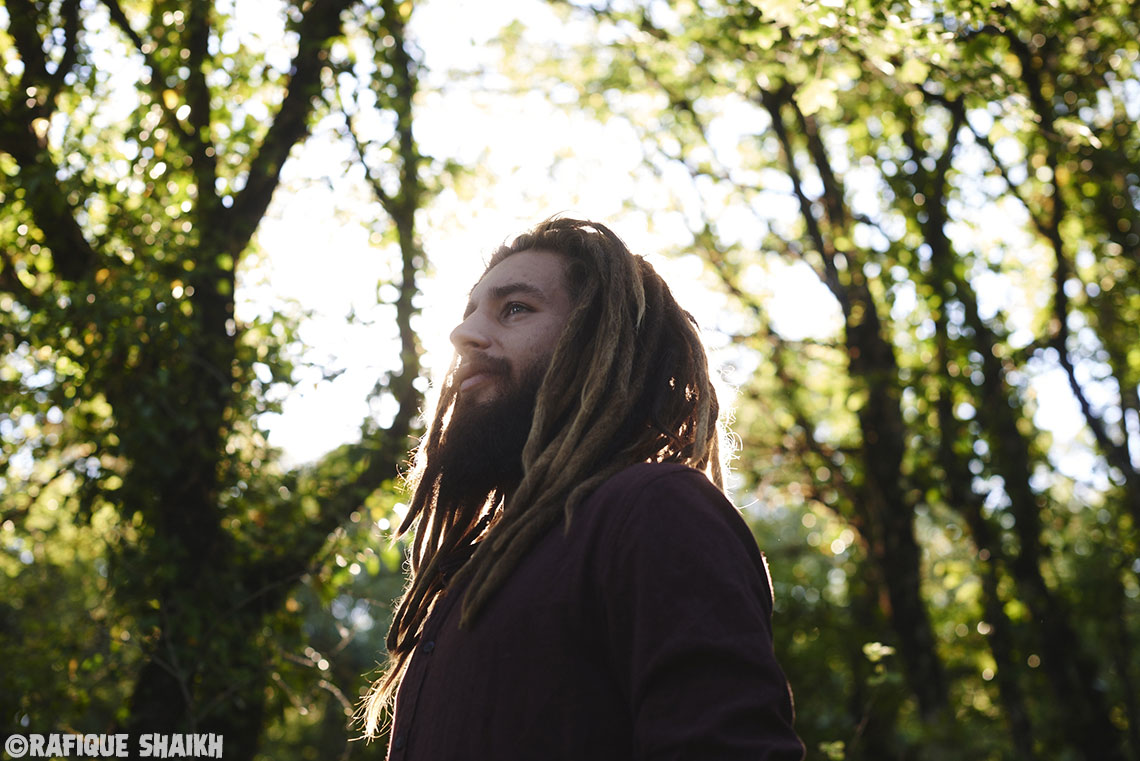
Who is the videographer?
It's a friend from Mumbay, an Indian brother called Rafique Shaikh. He's been doing a lot of videos, he does different works, and I really wanted to do it with him. It would be difficult to shoot a video in India without an Indian producer, because India is so hectic and crazy (laughs).
Are there videos for other tracks as well?
Yes, we did another video in the Himalayas for Live Up To The Day, so this one should be out on the first of March. That's the two videos for this project.
Can you elaborate a bit on the amazing cover artwork and the design?
Well, actually this picture was also done by a really good friend of ours. He dives a lot and he does photography. He was diving on the southern tip of Egypt and we had sent him the tracks and he liked them a lot and listened to them. Eventually, one day he set us this picture and he said 'I was listening to your music and it inspired me to take this picture and you can have it and use it.' and we thought 'Wow, perfect picture to make the cover!' you know!
And then I had the idea to put this geometry around it, because I thought that the picture really illustrated the title. It's about entering a special space where you realize that things are really sacred and holy, so that's why I wanted to put this geometry around this diver to really give this feeling that you are entereing some kind of meditative space that is really special. It's actually like the Indian hold diagram that they call diantra. The buddhist also have this, so they are like sacred geometry forms that date back really thousands of years, and now you can see these forms and shapes in many cultures.
Are there already new projects you are involved in after the release of this EP?
Yes, actually I've been working on a project with Zion I Kings. They've been working a lot with Midnite, Lutan Fyah, Pressure Busspipe, and we've been working on this album together and we already got around 15 songs. I'm shooting the video for this right now. I don't know the release date yet, but it should be released by the end of the year.
In one of your older songs you say "You are everything you allow yourself to be" - that sounds like a big promise to make!
Yes. I think a lot of us have been brought up in this system that encloses people, like people believe that they cannot do this or be that, you know, but what I found out when I started travelling at such a young age is that all these boxes that they try to put me in were only that - boxes. All of us, we have greatness inside ourselves, and if we can uncondition ourselves, de-condition ourselves from the system that we've been brought up in, there is so many things that come out, so much inspiration! I think sometimes that... there is this Indian saying "The distance between you and God is the same as the distance between you and your self". And I really feel this is truth, because as soon as you start opening, everybody has the answer! I feel like the only barrier for ourselves is us.
Anything else you want to tell the people about your EP?
For me, Enter A Space is really one of my best works lyrically, something spiritual and philosophical. You will find in the lyrics from this piece that there is really something that is coming back. I'm puttin an emphasis on the spirit, on the soul, because I think we in this world are way too material, up to the extent that people really identify through their bodies and through their belongings. So, with this album I really try to put people in a space where they realize that we are souls before we are bodies. I think the album is really about this, to enter in this space of meditation to really find this true self that is beyond anything that we could possibly name or see.




